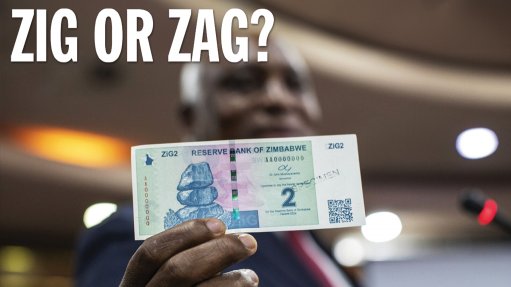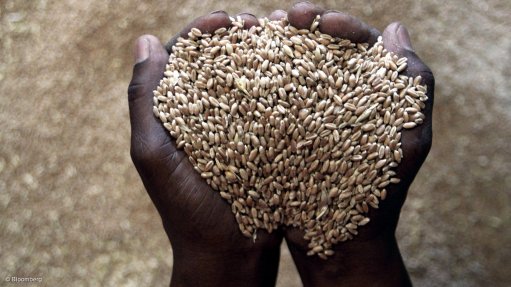Medicine delivery drones take to the skies in Ghana
A post on Ghanaian Vice-President Mahamudu Bawumia’s Twitter feed towards the end of last month caught my eye. It was a twenty-worder: “Not a single Ghanaian, irrespective of his or her remoteness, deserves to die due to inaccessibility to emergency healthcare.” The West African nation is not in election mode, so I could not dismiss this as the empty rhetoric of a vote-chasing politician. I then set about digging deeper and what I found out was that the Ghanaians do have a good story to tell.
Like many African countries, Ghana is blighted by poor infrastructure, including roads. As a result, travel to some places in the countryside – which is home to 45.32% of the population – can be a challenge.
Bawumia’s Tweet was posted in the wake of a development that will go a long way towards overcoming the challenge posed by shoddy roads to the delivery of emergency medical supplies to rural hospitals. That event was the commissioning – presided over by Bawumia himself – of Ghana’s first medical drone delivery centre, in the east of the country. Three more will soon be established in the country.
US company Zipline will operate 30 drones out of the four centres, distributing vaccines, blood and life-saving medication to 2 000 health facilities. According to the country’s Ministry of Health, the centres will serve about 12-million people.
The new initiative has won all-round applause, including from Global Alliance for Vaccines and Immunisation CEO Dr Seth Berkley, who enthused: “The ability of the Ghana government to supplement routine immunisation on demand will allow us to make sure that there will always be enough life-saving vaccines for every child in Ghana.
“This is an exciting development . . . that is ultimately going to ensure we leave no one behind and help us protect more children living in remote areas against vaccine-preventable diseases.”
The Ghana initiative is Zipline’s second in Africa; the pioneering one was launched in Rwanda in October 2016. The service’s success has been phenomenal, with 10 000 deliveries reportedly having been completed from inception to the end of March, saving the lives of scores of patients, especially new mothers requiring emergency blood supplies for transfusion.
How the system works is simplicity epitomised. A doctor places an order on-demand with a distribution centre using a simple app on his or her cellphone. A drone then flies to the healthcare facility where the doctor is based, drops off the package, turns around and flies back to the distribution centre – all in less than an hour. In rural Rwanda, a similar delivery by road could take up to four hours.
Other African countries have embraced drone technology to address healthcare challenges. For example, the United Nations Children’s Fund (Unicef) and the government of Malawi – remember the Central African country whose citizens former President Jacob Zuma infamously insulted as “Africans in Africa”? – are trialling the use of drones to transport blood samples from hard-to-reach areas for HIV testing.
In another initiative, in the country’s Kasungu district, Unicef is using drones to collect data to identify the breeding sites of malaria-causing mosquitos so that the larvae can be controlled, reducing the number of adult mosquitos that are able to spread the disease. Along with pneumonia and diarrhoea, malaria is one of the three leading causes of death among under-fives in Malawi.
It is quite interesting that, while Rwanda – an African country that only 25 years ago was the site of an internecine blood-letting that left 800 000 people dead – has a well- established drone medical supplies delivery service, the mighty US is moving out of the starting blocks only now. The US media reported at the end of March that parcel delivery giant UPS had teamed up with drone services startup Matternet to trial the delivery of medical supplies to a hospital in California.
Airspace regulations in the US have been cited as a formidable hurdle for most companies intending to launch commercial drone delivery services.
Comments
Announcements
What's On
Subscribe to improve your user experience...
Option 1 (equivalent of R125 a month):
Receive a weekly copy of Creamer Media's Engineering News & Mining Weekly magazine
(print copy for those in South Africa and e-magazine for those outside of South Africa)
Receive daily email newsletters
Access to full search results
Access archive of magazine back copies
Access to Projects in Progress
Access to ONE Research Report of your choice in PDF format
Option 2 (equivalent of R375 a month):
All benefits from Option 1
PLUS
Access to Creamer Media's Research Channel Africa for ALL Research Reports, in PDF format, on various industrial and mining sectors
including Electricity; Water; Energy Transition; Hydrogen; Roads, Rail and Ports; Coal; Gold; Platinum; Battery Metals; etc.
Already a subscriber?
Forgotten your password?
Receive weekly copy of Creamer Media's Engineering News & Mining Weekly magazine (print copy for those in South Africa and e-magazine for those outside of South Africa)
➕
Recieve daily email newsletters
➕
Access to full search results
➕
Access archive of magazine back copies
➕
Access to Projects in Progress
➕
Access to ONE Research Report of your choice in PDF format
RESEARCH CHANNEL AFRICA
R4500 (equivalent of R375 a month)
SUBSCRIBEAll benefits from Option 1
➕
Access to Creamer Media's Research Channel Africa for ALL Research Reports on various industrial and mining sectors, in PDF format, including on:
Electricity
➕
Water
➕
Energy Transition
➕
Hydrogen
➕
Roads, Rail and Ports
➕
Coal
➕
Gold
➕
Platinum
➕
Battery Metals
➕
etc.
Receive all benefits from Option 1 or Option 2 delivered to numerous people at your company
➕
Multiple User names and Passwords for simultaneous log-ins
➕
Intranet integration access to all in your organisation


















